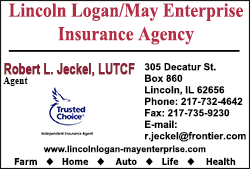|
 Merck, the sole U.S. supplier of measles vaccines, said the
increased demand was noticeable, but did not amount to a surge, and
has not required a significant increase in distribution across the
country. Merck, the sole U.S. supplier of measles vaccines, said the
increased demand was noticeable, but did not amount to a surge, and
has not required a significant increase in distribution across the
country.
"Despite what we've seen as a huge uptick in the number of cases ...
the demand side of the equation hasn't been outstripping our
underlying capacity," Merck Chief Marketing Officer Mike Nally, who
also runs the firms Global Human Health business, said in an
interview.
The U.S. Centers for Disease Control and Prevention (CDC) reported
704 cases of measles as of April 26, a 1.3 percent increase since
the 695 reported last week. The vast majority of cases have occurred
in children who have not received the measles-mumps-rubella (MMR)
vaccine, and public health officials are working to ensure
immunization.
The measles virus is highly contagious and can cause blindness,
deafness, brain damage or death. It is currently spreading in
outbreaks in many parts of the world.
U.S. officials deemed the disease eliminated in 2000, yet outbreaks
still happen as infected travelers expose vulnerable populations to
the virus, particularly in communities with many vaccine skeptics.
Adults in the United States who were vaccinated against measles
decades ago may also need a new dose of the vaccine depending on
when they received the shot and whether they live in an outbreak
zone or plan to travel to one, according to public health experts
battling the outbreak.

[to top of second column] |

Merck said on Tuesday that U.S. sales of MMR and chickenpox vaccines
rose around 10 percent to $343 million in the first quarter.
Nally said much of the increase came from sales to private clinics,
which pay more than the government for the vaccines, rather than an
increase in volume.
He said there are pockets of demand for the vaccine around areas
where there have been cases of measles. The current outbreak has
been concentrated in New York City, where officials said more than
390 cases have been recorded since October, mostly among children in
Orthodox Jewish communities in Brooklyn.

But Merck has not see a significant uptick of purchases from the
CDC, which is a large supplier of the pediatric population through
its Vaccines for Children program.
Merck's Nally said the company believes it will be able to meet that
new demand.
"As measles outbreaks have occurred in different parts of the world
over the last few decades, we've always been able to surge capacity,
and we feel confident about our ability to do so in the U.S," he
said.
(Reporting by Michael Erman; Editing by David Gregorio)
[© 2019 Thomson Reuters. All rights
reserved.] Copyright 2019 Reuters. All rights reserved. This material may not be published,
broadcast, rewritten or redistributed.
Thompson Reuters is solely responsible for this content. |